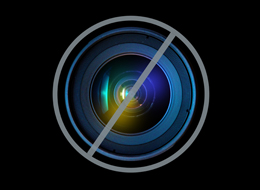
Welcome to Ask Healthy Living -- in which you submit your most burning health questions and we do our best to ask the experts and get back to you. Have a question? Get in touch here and you could appear on Healthy Living!
"Ask Healthy Living" is for informational purposes only and is not a substitute for medical advice. Please consult a qualified health care professional for personalized medical advice.
My health practitioner advised me to adopt this Paleo diet to reduce cholesterol and blood sugar. Also said it's an ideal way to lose weight. It recommends avoiding dairy, sugar, grains and legumes. Is this the answer to most of our health problems?
-- Rita
If you're unfamiliar with this popular diet, the Paleo Diet (also known as the "Caveman Diet") prescribes a pattern of eating that mirrors the way your ancestors ate back (way back!) in the day. The assertion is simple: diseases like obesity, diabetes and heart disease are illnesses "of civilization" and so, to combat the ill effects of the modern diet, we should return to a pre-civilization, hunter-gatherer diet of meat, fish, fruits and vegetables. That means all gains from the agrarian revolution -- grains, dairy, legumes, salt and sugars -- are off the menu.
"Although in theory this may seem like a sensible diet, particularly when removing sugar and salt, it has eliminated several food groups like dairy and grains, which provide essential nutrients, such as calcium, vitamin D, magnesium and phosphorus in dairy and B vitamins, fiber and antioxidants in grains," says Joy Dubost, a registered dietician and a spokesperson for the Academy of Nutrition and Dietetics. "Legumes also provide a great protein source with little fat and lower in calories while providing essential nutrients and fiber."
Lisa Sassoon, a registered dietitian and assistant clinical professor of nutrition at NYU, agrees. "There's no real research behind it either. And it eliminates things thatdo have research behind them: grains, beans and low-fat dairy."
That research shows that nutrients in legumes, whole grains and dairy help to lower one's risk of osteoporosis and cardiovascular disease, reduce blood pressure, and maintain a healthy weight, according to Dubost.
And while the diet's restrictive nature might result in initial weight loss, it can be problematic as a long-term weight loss solution, according to the researchers we spoke with. When you eliminate whole food groups, you are bound to pay more attention to what you eat. And the ban on refined grains, salt and sugars means that processed foods are out. For those with a relatively processed diet, that will likely result in weight loss. And excess weight is one of the major associated conditions to high cholesterol, high blood pressure and pre-diabetes.
"If you lose weight, your cholesterol comes down. Weight loss will help all of those other things, with the exception of certain cases, where there’s a genetic predisposition," says Sassoon. In this way, Rita's doctor may be correct: if she currently eats a diet high in refined carbs, processed meals and sugar-laden treats, the Paleo Diet is certainly a step in the right direction.
But if she already has a diet full of fresh produce, lean proteins and whole foods, Paleo eating may not result in weight loss and may prevent healthy eating behaviors that come naturally. "If someone eats low-fat plain yogurt with berries for breakfast, that's not allowed on the diet," says Sassoon.
"The biggest issue to be addressed is not eliminating these food groups but ensuring that portion size is appropriate," explains Dubost.
There's also problematically little stated about saturated fat. As part of the Paleo diet, it would be easy to choose cuts of meat that are sky-high in artery-clogging LDL cholesterol and saturated fat. Especially for someone used to eating low-fat dairy protein, this switch would be harmful to cholesterol levels. And while the Paleo diet is high in fiber (thanks to all the fresh produce), forbidden foods like whole grain oats, beans and other grain and legume sources of fiber have been found to help moderate cholesterol levels.
There's another, wholly unrelated problem: pleasure. "It eliminates quinoa, ice cream, pasta -- these things we love to eat, that make us social creatures," says Sassoon. "And that means we're less likely to stick with it, more likely to binge. It's not just about losing weight, it’s also about learning how to enjoy food in a healthy way."
So does the Paleo Diet really lower cholesterol and help with many of the conditions that lead to metabolic syndrome? Only insofar as they cut out sugary, fatty and processed foods. Buy you can do that without eliminating whole food groups or imitating the eating patterns -- most likely dictated by food scarcity -- of pre-agrarian ancestors.
No comments:
Post a Comment